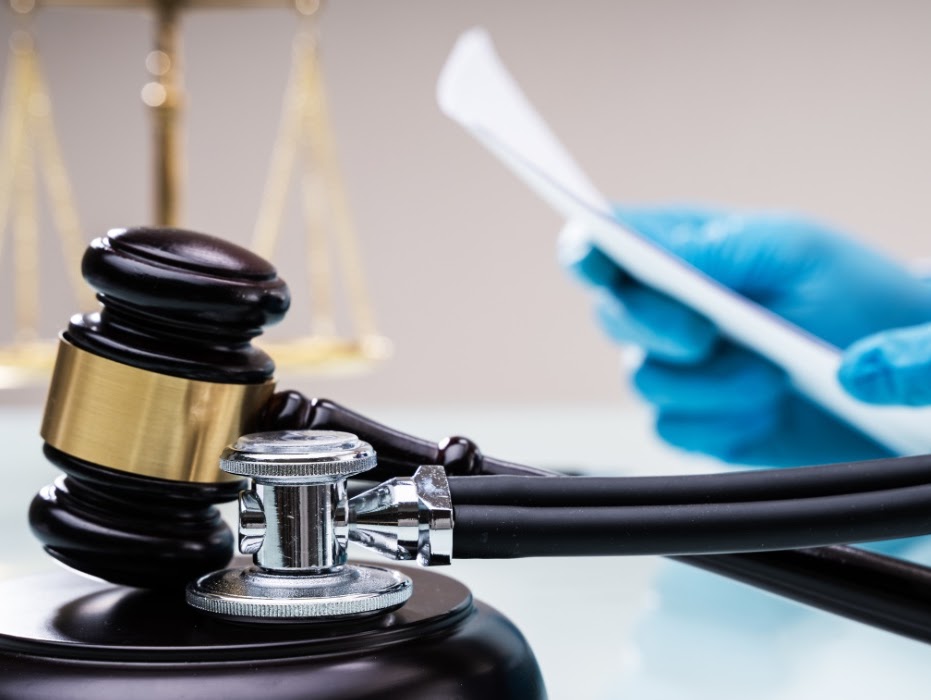

Medical records are crucial pieces of evidence in any medical malpractice case, providing a detailed timeline of a patient’s treatment, diagnoses, medications, and doctor-patient interactions. In Irvine, medical malpractice lawyers rely on these records to analyze whether the healthcare provider followed the standard of care or if there were errors or omissions that led to harm. Records like doctor’s notes, lab results, imaging reports, and prescriptions give insight into the decisions and actions taken by healthcare providers.
For instance, in cases of misdiagnosis, reviewing the medical records can reveal if the doctor overlooked symptoms or failed to order necessary tests. In surgical error cases, records may show whether there was a miscommunication among the surgical team or if proper protocols were followed. An experienced Irvine medical malpractice lawyer will thoroughly review and interpret these records to identify areas where the provider may have deviated from accepted standards.
Requesting medical records can be complicated, as healthcare providers have specific guidelines and timelines for releasing them. It’s important to obtain these records as soon as possible to avoid delays, especially since medical malpractice cases in California have strict filing deadlines. A lawyer can guide clients through this process, ensuring that all relevant records are obtained and preserved as part of a comprehensive case strategy.
The effects of medical malpractice extend beyond the individual who suffered the injury, impacting families emotionally, financially, and psychologically. In Irvine, families dealing with a malpractice injury often face the burden of ongoing medical bills, lost income, and the need for specialized care. When the victim requires extensive rehabilitation, home modifications, or long-term medical support, family members may find themselves stepping in as caregivers, often at the expense of their own lives and careers.
Beyond the practical challenges, medical malpractice can lead to emotional distress for both the patient and their loved ones. Seeing a family member suffer due to a preventable error can leave families feeling helpless and angry. In some tragic cases, malpractice results in the death of a loved one, causing a profound sense of loss and emotional suffering.
Working with an Irvine medical malpractice lawyer provides families with the support they need to pursue justice and compensation. A lawyer helps quantify the full impact of the malpractice, ensuring that damages include not only medical expenses but also compensation for pain, suffering, and emotional distress. This support can ease some of the burdens, allowing families to focus on healing and rebuilding their lives.

Medical malpractice cases can be overwhelming and stressful for anyone involved.. From dealing with the physical and emotional repercussions of a medical error to navigating the complex legal system, it can feel like an uphill battle to seek justice and compensation. If you or a loved one has been a victim of medical malpractice, it is important to understand your rights and options for seeking compensation.
Posted by on 2024-11-10

Medical malpractice lawyers are legal professionals who specialize in cases where healthcare providers, such as doctors, nurses, and hospitals, have been negligent or failed to provide a standard level of care to their patients.. These types of cases can be complex and often involve serious injuries or even death. Medical malpractice lawyers typically handle a variety of cases that involve medical errors or negligence.
Posted by on 2024-11-10

Navigating the complex legal process of a medical malpractice claim can be overwhelming and intimidating.. From gathering evidence to filing paperwork, there are many steps involved in pursuing compensation for a medical error. The first step in this process is to consult with a qualified attorney who specializes in medical malpractice cases.
Posted by on 2024-11-10

If you or a loved one has suffered harm due to medical malpractice, seeking the help of a skilled medical malpractice lawyer can be vital in obtaining the compensation you deserve.. Medical malpractice occurs when a healthcare provider fails to provide proper treatment or care, resulting in injury or harm to the patient. With the help of a medical malpractice lawyer, you can seek various forms of compensation for the damages caused by medical negligence.
Posted by on 2024-11-10
Medical malpractice cases can be challenging because healthcare providers and their legal teams often employ defenses to avoid liability. Understanding these defenses is essential, as an experienced Irvine medical malpractice lawyer can anticipate and counter them effectively. One common defense is arguing that the injury resulted from a pre-existing condition rather than the healthcare provider’s negligence. Defense teams may claim that the patient’s medical history contributed to the adverse outcome and that the provider acted appropriately given the circumstances.
Another defense is informed consent, where providers argue that the patient was fully informed of the risks associated with a treatment or procedure and accepted them knowingly. This defense is often seen in cases where a treatment risk materializes unexpectedly, even when proper care was provided.
Some healthcare providers might argue that they adhered to the standard of care and that the injury was unavoidable. In these cases, an Irvine medical malpractice lawyer will bring in medical experts to counter this defense, showing how the provider’s actions fell short of expected standards. Having a knowledgeable attorney who understands these defenses and how to overcome them can significantly strengthen a victim’s case, improving the chances of a successful outcome.


Building a strong medical malpractice case requires meticulous attention to detail and an in-depth understanding of both medical and legal standards. An Irvine medical malpractice lawyer starts by gathering all pertinent documents, including medical records, treatment history, and witness statements. They work with medical experts to assess whether the healthcare provider’s actions deviated from the standard of care, which is a critical component in proving negligence.
The lawyer then works to establish causation, demonstrating that the provider’s negligence directly led to the patient’s injury or worsened their condition. This step involves linking the provider’s actions to the harm experienced by the patient, which often requires expert testimony. Experienced attorneys also quantify the damages, accounting for economic losses like medical bills and lost wages, as well as non-economic damages, such as pain and suffering.
Throughout this process, the lawyer anticipates possible defenses, preparing counterarguments to minimize the impact of these strategies. By crafting a comprehensive case, an Irvine medical malpractice lawyer maximizes the chances of a successful outcome, advocating for fair compensation and accountability for the victim.
The standard of care is a key concept in medical malpractice cases. In Irvine, like elsewhere, healthcare providers are expected to meet a certain level of competence and skill when treating patients. This standard varies depending on factors such as the provider’s specialization, the complexity of the case, and the circumstances under which treatment was given. A deviation from this standard, especially if it results in patient harm, forms the basis of a medical malpractice claim.
For example, a general practitioner may not be held to the same standard as a specialist when diagnosing a complex condition. However, both must follow reasonable practices within their expertise. In cases involving surgery, the standard of care includes following pre-operative and post-operative protocols to minimize risks. Failure to adhere to these standards, such as neglecting to monitor a patient after surgery, may be considered negligence.
An experienced Irvine medical malpractice lawyer collaborates with medical experts to define the applicable standard of care and to show how the healthcare provider failed to meet it. This expert analysis is crucial in demonstrating that the provider’s actions fell short, making it a central part of any malpractice case.


In California, medical malpractice claims are subject to a statute of limitations, which dictates the timeframe within which a claim must be filed. Generally, patients have one year from the date they discovered (or should have discovered) the malpractice, or three years from the date of the injury, whichever comes first. This rule is crucial in Irvine malpractice cases, as missing the deadline can result in losing the right to pursue compensation.
However, exceptions may apply in certain cases. For instance, if the victim is a minor, the statute of limitations may be extended until they turn 18. Similarly, if the malpractice was discovered much later, there may be a “delayed discovery” exception. Consulting with an Irvine medical malpractice lawyer as soon as possible after suspecting malpractice is essential, as the lawyer can ensure the claim is filed within the required timeframe.
Timely action also allows the attorney to gather fresh evidence, consult with experts, and build a strong case. By understanding and respecting the statute of limitations, a skilled lawyer helps victims protect their rights and avoid procedural pitfalls that could jeopardize their case.
Irvine, California | |
|---|---|
| Coordinates: 33°40′10″N 117°49′23″W / 33.66944°N 117.82306°W[2] | |
| Country | United States |
| State | California |
| County | Orange |
| Incorporated | December 28, 1971[3][4] |
| Named for | James Irvine |
| Government | |
| • Type | Council–manager[3] |
| • Body | Irvine City Council[5] |
| • Mayor | Farrah N. Khan (D) |
| • Vice mayor | Larry Agran |
| • City manager | Oliver Chi[6] |
| Area | |
| • Total | 65.92 sq mi (170.74 km2) |
| • Land | 65.61 sq mi (169.94 km2) |
| • Water | 0.31 sq mi (0.80 km2) 0.52% |
| Elevation | 56 ft (17 m) |
| Population | |
| • Total | 307,670 |
| • Rank | (2023) 2nd in Orange County 13th in California 63rd in the United States |
| • Density | 4,689.1/sq mi (1,810.46/km2) |
| Time zone | UTC−08:00 (Pacific) |
| • Summer (DST) | UTC−07:00 (PDT) |
| ZIP Codes[9] | 92602–92604, 92606, 92612, 92614, 92616–92620, 92623, 92650, 92697 |
| Area codes | 949, 657/714 |
| FIPS code | 06-36770[10] |
| GNIS feature IDs | 1660804, 2410116 |
| Sphere of influence | 74 miles (119 km)[3] |
| Website | cityofirvine |
| Symbols of Irvine | |
| Flower | Lily of the Nile[3] |
| Insect | Western Swallowtail Butterfly[3] |
| Tree | Camphor[3] |
| Vegetable | Asparagus[3] |
Irvine (/ˈɜːrvaɪn/) is a master-planned city in central Orange County, California, United States, in the Los Angeles metropolitan area. The Irvine Company started developing the area in the 1960s and the city was formally incorporated on December 28, 1971. The 66-square-mile (170 km2) city[11] had a population of 307,670 at the 2020 census. As of 2023, it is the second most populous city in Orange County, fifth most in the Greater Los Angeles region, and 63rd most in the United States.
A number of corporations, particularly in the technology and semiconductor sectors, have their national or international headquarters in Irvine. Irvine is also home to several higher-education institutions including the University of California, Irvine (UCI), Concordia University, Irvine Valley College, and campuses of California State University, Fullerton (CSUF), University of La Verne, and Pepperdine University.
The Gabrieleño indigenous group inhabited Irvine about 2,000 years ago. Gaspar de Portolà, a Spanish explorer, came to the area in 1769, which led to the establishment of forts, missions and cattle herds. The King of Spain parceled out land for missions and private use.
After Mexico's independence from Spain in 1821, the Mexican Congress passed the Mexican secularization act of 1833 which secularized the missions and resulted in the Mexican government assuming control of the lands of said missions. It began distributing the land to Mexican citizens who applied for grants. Three large Spanish/Mexican land grants, also known as ranchos, made up the land that later became the Irvine Ranch: Rancho Santiago de Santa Ana, Rancho San Joaquin and Rancho Lomas de Santiago.


In 1864, Jose Andres Sepulveda, owner of Rancho San Joaquin, sold 50,000 acres (200 km2) to Benjamin and Thomas Flint, Llewellyn Bixby and James Irvine for $18,000 to resolve debts due to the Great Drought. In 1866, Irvine, Flint and Bixby acquired 47,000-acre (190 km2) Rancho Lomas de Santiago for $7,000. After the Mexican-American War the land of Rancho Santiago de Santa Ana fell prey to tangled titles. In 1868, the ranch was divided among three claimants as part of a lawsuit: Flint, Bixby and Irvine. The ranches were devoted to sheep grazing. However, in 1870, tenant farming was permitted.
In 1878, James Irvine acquired his partners' interests for $150,000 ($4,735,862 in 2023 dollars[12]). His 110,000 acres (450 km2) stretched 23 miles (37 km) from the Pacific Ocean to the Santa Ana River. James Irvine died in 1886. The ranch was inherited by his son, James Irvine II, who incorporated it into the Irvine Company. James Irvine II shifted the ranch operations to field crops, olive and citrus crops.
In 1888, the Santa Fe Railroad extended its line to Fallbrook Junction, north of San Diego, and named a station along the way after James Irvine. The town that formed around this station was named Myford, after Irvine's son, because a post office in Calaveras County already bore the family name. The town was renamed Irvine in 1914.[13]


By 1918, 60,000 acres (240 km2) of lima beans were grown on the Irvine Ranch. Two Marine Corps facilities, MCAS El Toro and MCAS Tustin, were built during World War II on ranch land sold to the government.
James Irvine II died in 1947 at the age of 80. His son, Myford, assumed the presidency of the Irvine Company. He began opening small sections of the Irvine Ranch to urban development.
The Irvine Ranch played host to the Boy Scouts of America's 1953 National Scout Jamboree. Jamboree Road, a major street which now stretches from Newport Beach to the city of Orange, was named in honor of this event. David Sills, then a young Boy Scout from Peoria, Illinois, was among the attendees at the 1953 Jamboree. Sills came back to Irvine as an adult and went on to serve four terms as the city's mayor.
Myford Irvine died in 1959. The same year, the University of California asked the Irvine Company for 1,000 acres (4 km2) for a new university campus. The Irvine Company sold the requested land for $1 and later the state purchased an additional 500 acres (2.0 km2).[14]
William Pereira, the university's consulting architect, and the Irvine Company planners drew up master plans for a city of 50,000 people surrounding the new university. The plan called for industrial, residential and recreational areas, commercial centers and greenbelts. The new community was to be named Irvine; the old agricultural town of Irvine, where the railroad station and post office were located, was renamed East Irvine.[13] The first phases of the villages of Turtle Rock, University Park, Westpark (then called Culverdale), El Camino Real, and Walnut were completed by 1970.
On December 28, 1971, the residents of these communities voted to incorporate a substantially larger city than the one envisioned by the Pereira plan. By January 1999, Irvine had a population of 134,000 and a total area of 43 square miles (111 km2).[11]
In late 2003, after a ten-year-long legal battle, Irvine annexed the former El Toro Marine Corps Air Station. This added 7.3 square miles (19 km2) of land to the city and blocked an initiative championed by Newport Beach residents to replace John Wayne Airport with a new airport at El Toro.[15] The Orange County Great Park was developed there.
Irvine borders Tustin to the north, Santa Ana to the northwest, Lake Forest to the east and southeast, Laguna Hills and Laguna Woods to the south, Costa Mesa to the west, and Newport Beach to the southwest. Irvine also shares a small border with Orange to the north on open lands by the SR 261.
San Diego Creek, which flows northwest into Upper Newport Bay, is the primary watercourse draining the city. Its largest tributary is Peters Canyon Wash. Most of Irvine is in a broad, flat valley between Loma Ridge in the north and San Joaquin Hills in the south. In the extreme northern and southern areas, however, are several hills, plateaus and canyons.

Los Angeles architect William Pereira and Irvine Company employee Raymond Watson designed Irvine's layout beginning in the late 1950s, which is nominally divided into townships called "villages", separated by six-lane arterial roads. Each township contains houses of similar design, along with commercial centers, religious institutions, and schools. Commercial districts are checker-boarded in a periphery around the central townships. Only automobile transportation was planned for, with other forms of transportation ignored, resulting in Irvine becoming extremely car dependent today.
Pereira originally envisioned the university campus at the northern end of the Irvine Ranch. When the Irvine Company refused to relinquish valuable farmland in the flat central region of the ranch for this plan, the university site was moved to the base of the southern coastal hills. The city layout was based on the shape of a necklace (with the villages strung along two parallel main streets, which terminate at University of California, Irvine (UCI), the "pendant").[16] Residential areas are now bordered by two commercial districts, the Irvine Business Complex to the west (part of the South Coast Plaza–John Wayne Airport edge city) and Irvine Spectrum to the east.

All streets have landscaping allowances. Rights-of-way for powerlines also serve as bicycle corridors, parks, and greenbelts to tie together ecological preserves. The city irrigates the greenery with reclaimed water. The homeowners' associations which govern some village neighborhoods exercise varying degrees of control on the appearances of homes. In more restrictive areas, houses' roofing, paint colors, and landscaping are regulated. Older parts of the Village of Northwood that were developed beginning in the early 1970s independently of the Irvine Company and does not have homeowners' associations.The more tightly regulated villages generally offer more amenities, such as members-only swimming pools, tennis courts and parks.
Homeowners in villages developed in the 1980s and later may be levied a Mello-Roos special tax, which came about in the post-Proposition 13 era.


Each of the villages was initially planned to have a distinct architectural theme.
Business and commercial areas
Late spring and early summer in Irvine is subject to the June Gloom phenomenon widespread in southern California, with overcast mornings and occasional drizzle. Late summer and autumn are warm and mostly dry, with occasional bouts of humid weather extending from Pacific hurricanes off the west coast of Mexico. Winters are mild, with most winters having no frost, and can be hot and dry when the Santa Ana winds blow. Irvine has a Mediterranean climate wherein precipitation occurs predominantly during the winter months. Because Irvine is close to the coast, different parts of Irvine have different microclimates; for instance, the June Gloom effect is stronger in the southern parts of Irvine, closer to the Pacific Ocean.
It can occasionally snow in the Santa Ana Mountains to the northeast of Irvine.[19] Snow within the lower-lying parts of Irvine is very rare, but the area received three inches of snow in January 1949.[20] A tornado touched down in Irvine in 1991, an event that happens in Orange County more generally approximately once every five years.[21]
| Climate data for Irvine Ranch, Irvine, California (1991–2020 normals) | |||||||||||||
|---|---|---|---|---|---|---|---|---|---|---|---|---|---|
| Month | Jan | Feb | Mar | Apr | May | Jun | Jul | Aug | Sep | Oct | Nov | Dec | Year |
| Record high °F (°C) | 94 (34) |
92 (33) |
98 (37) |
106 (41) |
105 (41) |
109 (43) |
109 (43) |
110 (43) |
111 (44) |
108 (42) |
105 (41) |
97 (36) |
111 (44) |
| Mean daily maximum °F (°C) | 69.0 (20.6) |
70.5 (21.4) |
73.1 (22.8) |
76.4 (24.7) |
79.4 (26.3) |
82.5 (28.1) |
88.1 (31.2) |
90.2 (32.3) |
88.8 (31.6) |
84.2 (29.0) |
75.6 (24.2) |
67.8 (19.9) |
78.8 (26.0) |
| Daily mean °F (°C) | 58.8 (14.9) |
59.2 (15.1) |
61.4 (16.3) |
64.1 (17.8) |
67.6 (19.8) |
70.6 (21.4) |
75.0 (23.9) |
76.2 (24.6) |
75.3 (24.1) |
71.1 (21.7) |
64.0 (17.8) |
57.7 (14.3) |
66.7 (19.3) |
| Mean daily minimum °F (°C) | 48.6 (9.2) |
47.9 (8.8) |
49.7 (9.8) |
51.9 (11.1) |
55.5 (13.1) |
58.7 (14.8) |
61.9 (16.6) |
62.2 (16.8) |
61.7 (16.5) |
57.8 (14.3) |
52.5 (11.4) |
47.6 (8.7) |
54.7 (12.6) |
| Record low °F (°C) | 18 (−8) |
25 (−4) |
26 (−3) |
31 (−1) |
34 (1) |
40 (4) |
44 (7) |
43 (6) |
39 (4) |
29 (−2) |
25 (−4) |
24 (−4) |
18 (−8) |
| Average rainfall inches (mm) | 2.67 (68) |
3.47 (88) |
1.70 (43) |
0.85 (22) |
0.34 (8.6) |
0.04 (1.0) |
0.09 (2.3) |
0.01 (0.25) |
0.10 (2.5) |
0.62 (16) |
0.83 (21) |
2.34 (59) |
13.06 (331.65) |
| Average rainy days (≥ 0.01 in) | 4.1 | 4.1 | 3.0 | 2.2 | 1.6 | 0.2 | 0.3 | 0.1 | 0.4 | 1.9 | 2.4 | 4.2 | 24.5 |
| Source: NOAA[22][23] | |||||||||||||
| Census | Pop. | Note | %± |
|---|---|---|---|
| 1970 | 10,081 | — | |
| 1980 | 62,127 | 516.3% | |
| 1990 | 110,330 | 77.6% | |
| 2000 | 143,072 | 29.7% | |
| 2010 | 212,375 | 48.4% | |
| 2020 | 307,670 | 44.9% | |
| 2023 (est.) | 314,621 | 2.3% | |
| U.S. Decennial Census[24] | |||
| Historical racial profile | 1980[25] | 1990[25] | 2000[26] | 2010[27] | 2020[28] |
|---|---|---|---|---|---|
| White | 87.8% | 77.9% | 61.1% | 50.5% | 37.7% |
| —Non-Hispanic | 84.5% | 73.9% | 57% | 45.1% | 34.5% |
| Black or African American | 1.5% | 1.8% | 1.5% | 1.8% | 2.2% |
| Hispanic or Latino (of any race) | 5.8% | 6.3% | 7.4% | 9.2% | 11.7% |
| Asian | 7.8% | 18.1% | 29.8% | 39.2% | 45.4% |
| Two or more races | n/a | n/a | 5.4% | 5.5% | 9.7% |
| Race / Ethnicity (NH = Non-Hispanic) | Pop 2000[29] | Pop 2010[30] | Pop 2020[31] | % 2000 | % 2010 | % 2020 |
|---|---|---|---|---|---|---|
| White alone (NH) | 81,613 | 95,822 | 106,056 | 57.04% | 45.12% | 34.47% |
| Black or African American alone (NH) | 1,977 | 3,494 | 6,646 | 1.38% | 1.65% | 2.16% |
| Native American or Alaska Native alone (NH) | 162 | 199 | 285 | 0.11% | 0.09% | 0.09% |
| Asian alone (NH) | 42,506 | 82,722 | 139,725 | 29.71% | 38.95% | 45.41% |
| Pacific Islander alone (NH) | 180 | 295 | 341 | 0.13% | 0.14% | 0.11% |
| Other race alone (NH) | 359 | 554 | 1,790 | 0.25% | 0.26% | 0.58% |
| Mixed race or Multiracial (NH) | 5,736 | 9,668 | 16,972 | 4.01% | 4.55% | 5.52% |
| Hispanic or Latino (any race) | 10,539 | 19,621 | 35,855 | 7.37% | 9.24% | 11.65% |
| Total | 143,072 | 212,375 | 307,670 | 100.00% | 100.00% | 100.00% |
The 2010 United States Census[32] reported that Irvine had a population of 212,375. The population density was 3,195.8 inhabitants per square mile (1,233.9/km2). The racial makeup of Irvine was 107,215 (50.5%) White, 3,718 (1.8%) African American, 355 (0.2%) Native American, 83,176 (39.2%) Asian, 334 (0.2%) Pacific Islander, 5,867 (2.8%) from other races, and 11,710 (5.5%) from two or more races. Hispanic or Latino of any race were 19,621 persons (9.2%). Non-Hispanic Whites were 45.1% of the population.[27]
The census reported that 205,819 people (96.9% of the population) lived in households, 5,968 (2.8%) lived in non-institutionalized group quarters, and 588 (0.3%) were institutionalized.
There were 78,978 households, out of which 26,693 (33.8%) had children under the age of 18 living in them, 40,930 (51.8%) were opposite-sex married couples living together, 7,545 (9.6%) had a female householder with no husband present, 2,978 (3.8%) had a male householder with no wife present. There were 3,218 (4.1%) unmarried opposite-sex partnerships, and 463 (0.6%) same-sex married couples or partnerships. 18,475 households (23.4%) were made up of individuals, and 4,146 (5.2%) had someone living alone who was 65 years of age or older. The average household size was 2.61. There were 51,453 families (65.1% of all households); the average family size was 3.13.
The age distribution of the population was as follows: 45,675 people (21.5%) under the age of 18, 30,384 people (14.3%) aged 18 to 24, 66,670 people (31.4%) aged 25 to 44, 51,185 people (24.1%) aged 45 to 64, and 18,461 people (8.7%) who were 65 years of age or older. The median age was 33.9 years. For every 100 females, there were 94.9 males. For every 100 females age 18 and over, there were 92.4 males.
There were 83,899 housing units at an average density of 1,262.5 per square mile (487.5/km2), of which 39,646 (50.2%) were owner-occupied, and 39,332 (49.8%) were occupied by renters. The homeowner vacancy rate was 2.2%; the rental vacancy rate was 6.2%. 109,846 people (51.7% of the population) lived in owner-occupied housing units and 95,973 people (45.2%) lived in rental housing units.
During 2009–2013, Irvine had a median household income of $90,585, with 12.2% of the population living below the federal poverty line.[33]
The census[10] of 2000 found there were 143,072 people, 51,199 households, and 34,354 families in the city. The population density was 3,098.0 inhabitants per square mile (1,196.1/km2), as of the census. There were 53,711 housing units at an average density of 1,163.0 per square mile (449.0/km2). The racial makeup of the city was 61.1% White, 7.4% of the population were Hispanic or Latino of any race, 1.5% Black or African American, 0.2% Native American, 29.8% Asian, 1.1% Pacific Islander, 2.5% from other races, and 4.8% from two or more races.
There were 51,199 households, out of which 36.0% had children under the age of 18 living with them, 53.8% were married couples living together, 9.8% had a female householder with no husband present, and 32.9% were non-families. 22.8% of all households were made up of individuals, and 5.0% had someone living alone who was 65 years of age or older. The average household size was 2.70 persons and the average family size was 3.17.
In the city, the population was spread out, with 23.5% under the age of 18, 14.4% from 18 to 24, 32.3% from 25 to 44, 22.6% from 45 to 64, and 7.2% who were 65 years of age or older. The median age was 33 years. For every 100 females, there were 93.8 males. For every 100 females age 18 and over, there were 90.0 males.
According to 2007 Census Bureau estimates, the median income for a household in the city was $98,923, and the median income for a family was $111,455; these numbers make Irvine the seventh richest city in the US, among cities with population 65,000 or higher.[34] 9.1% of the population and 5.0% of families were below the poverty line. Of the total population, 6.1% of those under the age of 18 and 5.6% of those 65 and older were living below the poverty line.
In 2006, the median gross rent paid for housing was $1,660 a month. This was the highest of any place in the United States of more than 100,000 people.[35] The skyrocketing high cost of housing is a major issue in Irvine and Orange County, as the city council faces pressure to approve future income-subsidized housing projects to meet the demands of working-class citizens.





Irvine's tourism information is coordinated through the Destination Irvine program run by the Chamber of Commerce. The program provides information on Irvine as a place to vacation and as a destination for meetings, events and other business initiatives. Irvine has been rated one of the top cities for start-up businesses and its strong, fast-growing economy helped place Orange County as one of the top ten fastest growing job markets.[36]
Irvine is also used as a location for film projects. The city government grants free or low-cost filming permits and offers location information to prospective productions.
| # | Employer | Employees (2021)[37] | Industry | HQ |
|---|---|---|---|---|
| 1 | University of California, Irvine | 18,373 | Education | |
| 2 | Blizzard Entertainment | 4,022 | Gaming | |
| 3 | Irvine Unified School District | 3,897 | Education | |
| 4 | Edwards Lifesciences | 3,152 | Healthcare | |
| 5 | B.Braun | 1,910 | Healthcare | |
| 6 | Center for Autism | 1,892 | Healthcare | |
| 7 | Haskell | 1,453 | Architecture | |
| 8 | Western Digital | 1,350 | Computer storage | |
| 9 | Capital Group | 1,198 | Financial services | |
| 10 | Thales Group | 1,084 | Aerospace |
This section needs additional citations for verification. (August 2021) |
The following companies are headquartered in Irvine:
The following international companies have their North American headquarters in Irvine:
Every October, Irvine hosts the Irvine Global Village Festival to celebrate the diversity among the citizens of Irvine and Orange County. The festival consists of exhibits from local merchants, entertainment from diverse cultures, and sampling of foods from various regions of the world.[40] The event is held at the Orange County Great Park.
The Irvine Community Television (ICTV) produces and broadcasts television programs on news, sports, arts, culture, safety for the Irvine community. The motto of ICTV is "For You, About You". ICTV airs on Cox Communications channel 30 and online.[41][42]
Irvine has three public libraries: Heritage Park Regional Library, University Park Library, and Katie Wheeler Library. The Heritage Library serves as the regional reference library for Central Orange County and has a strong business and art focus while the University Park Library has 95,745 books, including a substantial Chinese collection.[43] Katie Wheeler was the granddaughter of James Irvine, and the library is a replica of the house owned by Irvine in which she grew up.[44] Additionally, most UCI Libraries are open to the public.[45]

Irvine is home to USA Water Polo, the national governing body of the sport of water polo.[46]
Irvine is home to Orange County SC, a professional soccer team who is a member of the USL Championship. The team plays its home matches at Championship Soccer Stadium, located inside Great Park.
Community parks in Irvine have public facilities located on each site, and neighborhood parks provide open space and some recreational amenities within the various villages of Irvine.
Northwood Community Park features the Northwood Gratitude and Honor Memorial, a memorial to U.S. soldiers who died in the Iraq War and the War in Afghanistan, and the first memorial in the United States built before the wars ended.[47]
Other parks include:
Irvine is a charter city, operating under a council–manager form of government.[5]
The City Council consists of the mayor and four City Council members.[49] The Mayor serves a two-year term and Council members serve four-year terms. The city has a two-term limit for elected officials. Elections are held every two years, on even-numbered years. Before 2024, two Council members and the Mayor's seat were up for consideration in each election. The City Council appoints the City Manager, who functions as the chief administrator of the city. The City Council sets the policies for the city, and the City Manager is responsible for implementing the policies. The City Council appoints volunteers that serve on various advisory boards, commissions and committees.
In October 2023, the Irvine City Council voted to propose an amendment to the city charter to elect council members by district and expand the council to seven members.[50] The Council also adopted a district map to take effect if Irvine voters approved the charter amendment.[50] After voters approved the charter amendment in the March 2024 Primary Election, Irvine will elect its first Council members by district in Irvine's 2024 municipal elections.[51] Council districts 2, 3 and 4 will elect Council members in presidential election years and Council districts 1, 5 and 6 will elect Council members in midterm election years.[52] In 2024, Council District 1 will also elect a Council member to serve a shortened two-year term until its first regular election in 2026.[52] Irvine's mayor will continue to be elected citywide.[52]
| Elected Official | Title | Term | Term Beginning | Term Ending | Party (officially nonpartisan) | References |
|---|---|---|---|---|---|---|
| Farrah Khan | Mayor | 2nd | 2022 | 2024 | Democratic | [53] |
| Larry Agran | Vice Mayor | 8th | 2022 | 2026 | Democratic | [54] |
| Tammy Kim | Councilmember | 1st | 2020 | 2024 | Democratic | [55] |
| Kathleen Treseder | Councilmember | 1st | 2022 | 2026 | Democratic | [56] |
| Mike Carroll | Councilmember | 2nd | 2020 | 2024 | Republican | [57] |
According to the city's Comprehensive Annual Financial Report for FY2014–2015, as of June 30, 2015, the city has net assets of $2.59 billion. FY2014–15 revenues totaled $395.2 million, with property tax accounting for $50.7 million and sales tax accounting for $58.8 million. As of June 30, 2015, the city's governmental funds reported combined ending fund balances of $960.9 million.[58]
The city of Irvine is served by eight departments. These departments are responsible for managing and performing all of the business of the City Hall and its services.
Support services are provided through other agencies including: Irvine Unified School District, Tustin Unified School District, Southern California Edison, Irvine Ranch Water District, and Orange County Fire Authority.
In the California State Senate, Irvine is in the 37th Senate District, represented by Democrat Dave Min. In the California State Assembly, Irvine is in the 73rd Assembly District, represented by Democrat Cottie Petrie-Norris.
In the United States House of Representatives, Irvine is in California's 47th congressional district, represented by Democrat Katie Porter.[59]
According to the Orange County Registrar of Voters, as of March 8, 2021, Irvine has 150,014 registered voters. Of those, 60,212 (40.14%) were registered Democrats, 37,510 (25.00%) were registered Republicans, and 45,913 (30.61%) have declined to state a political party/are independents.[60]
Irvine voted for the Republican presidential candidate in every election from 1976 to 2004. Since 2008, Irvine has voted for the Democratic candidate by a comfortable margin in each presidential election. In 2020, Democratic candidate Joe Biden won 64.3% of the vote in Irvine to Republican Donald Trump's 33.6%.
Most of Irvine is located in the Irvine Unified School District (IUSD). The five high schools in IUSD are University High School, Irvine High School, Northwood High School, Woodbridge High School, and Portola High School. Arnold O. Beckman High School is located in Irvine but is administered by Tustin Unified School District. The five high schools in IUSD, as well as Beckman High School, have consistently placed in the upper range of Newsweek's list of the Top 1,300 U.S. Public High Schools. Crean Lutheran High School, a private Lutheran high school, and Tarbut V' Torah, which is a Jewish day school, are also located in Irvine.
Irvine is also home to elementary and middle schools, including two alternative, year round, open enrollment K-8 schools, Plaza Vista and Vista Verde.[61][62] Parts of the north and west of the city are within the Tustin Unified School District. A very small portion of the city, near Orange County Great Park, is located within the Saddleback Valley Unified School District.[63] The southwest portion of the city near John Wayne International Airport is located within the Santa Ana Unified School District.[64]
Irvine is home to the University of California, Irvine, which is the second-newest campus (established 1965) in the UC system after University of California, Merced. Other higher education institutions in Irvine include California Southern University, Concordia University, Westcliff University, Irvine Valley College, Fuller Theological Seminary, FIDM, The Fashion Institute of Design and Merchandising, Orange County Campus, Stanbridge University, and a satellite campus of California State University, Fullerton.
According to the 2000 United States Census, Irvine is ranked 7th nationwide, among cities with populations of at least 100,000, for having the highest percentage of people who are at least 25 years old with doctoral degrees, with 3,589 residents reporting such educational attainment.[65]

Streets and intersections owned by the city have trademark mahogany signage and are fiber optically linked to the city's Irvine Traffic Research and Control Center (ITRAC).[66] Traffic cameras and ground sensors monitor the flow of traffic throughout the city and automatically adjust signal timing to line up traffic, allowing more vehicles to avoid red lights.[67] Several major highways pass through Irvine (Interstate 5, and Interstate 405, California State Route 73, California State Route 133, California State Route 241, and California State Route 261). Major arteries through Irvine are built out widely and run in a northeasterly direction with speed limits of 50 mph (80 km/h) or greater.
In 2015, 5.0 percent of Irvine households lacked a car; this percentage decreased to 4.0 percent in 2016. The national average was 8.7 percent in 2016. Irvine averaged 1.83 cars per household in 2016, compared to a national average of 1.8.[68]

Local bus routes are operated by the Orange County Transportation Authority.
The city of Irvine has operated its own bus service called the iShuttle since 2008. Four weekday commuter shuttles serve major employers, residential areas, shopping centers, and transportation facilities. Two lines, Route A and Route B, connect the Tustin Metrolink Station to the Irvine Business Complex area. Route A provides service between the Tustin Metrolink Station and John Wayne Airport with stops along Von Karman Avenue. Route B heads along Jamboree Road before continuing through Main Street and Michelson Drive. The remaining two lines, Route C and Route D, offer connections between the Irvine Station and the Irvine Spectrum Area, which includes major employers, the Irvine Spectrum Center, and residential communities The Park and The Village. Route C follows Irvine Center Drive and ends at the Capital Group campus, while Route D serves the Irvine Spectrum Center, Kaiser Permanente – Irvine Medical Center, and Hoag Hospital Irvine.[69]
Irvine is served by commuter rail to Los Angeles, San Diego, Riverside, and San Bernardino counties at both the Irvine and Tustin stations of Metrolink's Orange County Line and Inland Empire–Orange County Line, with Tustin Station being located adjacent to Irvine's western boundary. Currently, trains are infrequent for a city the size of Irvine, with Metrolink trains approximately every 30 minutes only during peak weekday commuting hours and no Metrolink service in off-peak directions or times. Amtrak trains run approximately every 60 to 180 minutes all days of the week along the Pacific Surfliner route between San Diego and Los Angeles. Amtrak trains stop only at the Irvine station, unlike Metrolink, which stops at both the Irvine and Tustin stations. All Amtrak service heading north stops at 10:49 PM, while southerly service stops at 11:12 PM, while Metrolink never operates trains after 7:39 PM. Rail2Rail monthly passes allow commuters to use both Metrolink and Amtrak services, standard tickets are specific to a single operator. The Irvine station features a four-story parking structure.
A major contributing factor to the growth of Irvine was by freight rail provided by ATSF (now BNSF) Transportation. The Venta Spur was Irvine's first spur. Built in the 1920s, it moved citrus from three processing plants in what is now Northwood to the rest of the country. The processing plants were essentially Irvine's first and biggest employers of the time.
The plants started to go out of business in the 1970s and the spur was abandoned in 1985. In 1999, following its donation to the city of Irvine, it was turned into the Venta Spur bike trail.
The Irvine Industrial Spur is the second railroad spur in Irvine. It serves various industries in Irvine's Business Complex.
Irvine offers a system of bicycle lanes and trails to encourage the recreational use of bikes as a means of transportation. There are 113.2 miles (182.2 km) of off-road bicycle trails and 286.4 miles (461 km) of on-road bicycle lanes in Irvine.[70]
Irvine contracts with the Orange County Fire Authority for fire protection and ambulance service is provided by private companies. Law enforcement is provided by the Irvine Police Department (IPD). The IPD operates in a suburban city rated as having one of the lowest violent crime rates among cities with over 100,000 inhabitants by the FBI every year since 2005.[71] The University of California Police Department also has jurisdiction – including arrest power – in areas of the city near the UC Irvine campus, while the California State University Police Department has similar jurisdiction in areas of the city near the CSU Fullerton Irvine campus. Irvine Valley College also maintains its own on campus police department.
Irvine has four sister cities:[72]
According to the Internet Movie Database (IMDb), the following productions were partially or entirely filmed in Irvine:[73][74]
{{cite web}}: CS1 maint: archived copy as title (link)
If you suspect you have been a victim of medical malpractice in Irvine, seek medical attention immediately, document any injuries or symptoms, and contact an experienced medical malpractice lawyer to discuss your options for seeking compensation.